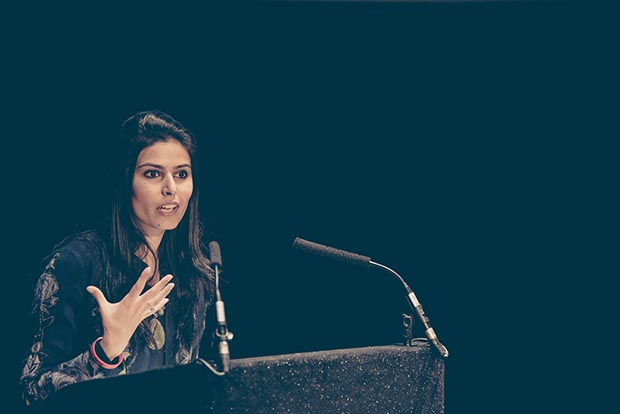18 Apr 2017 | Awards, News and features
[vc_row][vc_column][vc_column_text]

Grigory Pasko, was named Whistleblower of the Year at the 2001 Freedom of Expression Awards.
Grigory Pasko, a former naval officer and journalist for Russian Pacific Fleet newspaper Boyevaya Vakhta (Battle Watch), was imprisoned in 1997 after exposing Russia’s navy for illegally dumping nuclear waste in the Sea of Japan. He was arrested on charges of espionage and abuse of his official power as a former officer in the Russian navy.
Pasko was the winner of Index on Censorship’s International Whistleblower of the Year award in 2001.
Pasko spent 20 months in prison awaiting his first trial, and on 20 July 1999 he was acquitted of most of the charges. However, he was sentenced to three years in prison for abusing his authority as a naval officer. Pasko was finally released from prison under an amnesty in January 2003.
Although Russia’s 1990 Law on the Mass Media [1991] states that journalists are allowed to carry on investigations and Article 29 of the Russian Constitution bans censorship altogether, journalists are often persecuted for their work and subject to governmental harassment.
In March 2011, Pasko, along with his colleagues Igor Korolkov and Galina Sidorova, created an international NGO called the Community of Investigative Journalists – Foundation 19/29. The numbers 19 and 29 refer to the freedom of expression Articles of the Universal Declaration of Human Rights and the Russian Constitution.
Foundation 19/29 was created to provide guidance and assistance to Russian investigative reporters and bloggers who are in trouble due to their work and/or want to develop their professional skills.
Since his release from jail, Pasko has been campaigning for human rights and protection of the environment.
Index: How much more difficult is it now to be an informant than 16 years ago when you won the Index for Censorship International Whistleblower?
Pasko: The word “difficult” is no longer suitable. It is practically impossible without being detected and not “registered”. “To put on the register” means that suddenly there can be some difficulties: with obtaining a passport (as now at Dadin); with departure abroad; allegedly with non-payment of fines, taxes and so on; it can come with an apartment search or arrest (Mark Halperin recently) … Previously, this happened very rarely.
Index: What major projects are you currently working on and how does this differ from your work when you won the Index Awards?
Pasko: Since 2009, I have been engaged in teaching activities in the field of investigative journalism – journalists are, in fact, banned in Russia. Therefore, I am persecuted in all cities of Russia and in Moscow. I’m being squeezed out of the country, not giving me the opportunity to work. Our organization – Fund 19/29 http://foundation19-29.com/ was recognized as a “foreign agent” so that we had to stop our activities. Now there is a Fund 19/29, but already in Prague. In the same place, we conduct our training activities. In general, almost all independent NGOs are subject to harassment in Russia.
Index: How do you think the Russian government manages the information landscape? How does social media play a certain role in this?
Pasko: The Russian government (FSB, mostly) almost completely manages the information landscape. Those media and their blogs that still exist, for sure (if they are smart and sober) do not consider themselves independent, because they can be closed within a day. They are just allowed to exist. Social networks are relatively free so far. But they also gradually fall under the total dependence of the state (FSB). So the other day it happened with LiveJournal.
Index: What do you think, what will be the future for journalists in Russia?
Pasko: Independents will be persecuted, squeezed out of Russia, and those who remain will be imprisoned and / or killed. Independent journalism will not remain in the legal and free field. Only underground, in networks. The angry propaganda will occupy the entire information field.
Index: How did your attack in Siberia in September 2016 affect you?
Pasko: Personally, it did not. After two convictions and two imprisonments, I can only be killed, but not scared. But our partners in the regions were frightened and less likely to invite us to conduct studies on investigative journalism, despite the fact that there is a demand among young journalists, civil journalists and bloggers for this genre.
Index: Do you have any advice for other investigative journalists and informers working under a dangerously authoritarian regime?
Pasko: Be careful. Because no work should cost a human life. And, strangely enough, be bold – in the mass of its leadership of Russia (Chekists) are not only deceitful, but also cowardly. We need to learn to resist them – from the standpoint of legality, justice, respect for human rights and generally common sense. Journalism is a wonderful and necessary profession, and it deserves to be fought for by the journalists themselves.[/vc_column_text][/vc_column][/vc_row][vc_row][vc_column width=”1/2″][vc_single_image image=”85476″ img_size=”full” alignment=”center” onclick=”custom_link” link=”https://www.indexoncensorship.org/2016/11/awards-2017/”][/vc_column][vc_column width=”1/2″][vc_column_text]
Index on Censorship Freedom of Expression Awards
Seventeen years of celebrating the courage and creativity of some of the world’s greatest journalists, artists, campaigners and digital activists
2001 | 2002 | 2003 | 2004 | 2005 | 2006 | 2007 | 2008 | 2009 | 2010 | 2011 | 2012 | 2013 | 2014 | 2015 | 2016 | 2017[/vc_column_text][/vc_column][/vc_row][vc_row][vc_column][vc_basic_grid post_type=”post” max_items=”12″ style=”load-more” items_per_page=”4″ element_width=”6″ grid_id=”vc_gid:1492505147907-f0c495c9-a9a4-0″ taxonomies=”2650, 15″][/vc_column][/vc_row]
18 Apr 2017 | Asia and Pacific, Awards, Digital Freedom, Fellowship, Fellowship 2016, News and features, Pakistan
[vc_row][vc_column][vc_column_text]

Farieha Aziz, director of 2016 Freedom of Expression Campaigning Award winner Bolo Bhi (Photo: Elina Kansikas for Index on Censorship)
It has been eight months since the Prevention of Electronic Crimes Act (PECA), also known as the cyber crimes bill, was passed and enacted in Pakistan. The law, which has been in place since August 2016, is meant to limit the amount of hate speech online and protect internet users against malicious cyber crimes, however, many are concerned that it has not followed up on these promises.
Bolo Bhi, a non-profit organisation and activist group and winners of the 2016 Index on Censorship Freedom of Expression Award for Campaigning, has been vehemently opposed to PECA from the beginning because of its potential human rights violations and threats to the right to privacy and freedom of expression as the law would allow more unchecked government power and internet regulation.
Farieha Aziz, the director of Bolo Bhi, told Index on Censorship that there are simply not enough rules, oversight, and public awareness for the law to truly be effective in preventing cyber crime.
“If the government was really serious about the implementation of the law for the protection of the people, eight months on, where are the rules? Courts? Capacity of the Federal Investigation Agency, Pakistan Telecommunication Authority, prosecutors and courts to deal with cases?” Aziz said. “Why the deafening silence on this both the government and the opposition?”
Aziz said that government critics and other dissenters have been silenced as a result of the law, but the government has yet to make any effective moves against real malicious threats. She noted that the Khabaristan Times, a satirical media organisation, was recently blocked online under Section 38 of PECA which allows the government to remove and censor any “objectionable content”.
“This essentially stems from a failure to still grasp how the internet and technology function, and where and how the law can or cannot be applied,” Aziz said.
Bolo Bhi has published a document on its website titled “Recommendations for Implementation and Oversight” to solve the numerous problems regarding effective and fair enforcement of PECA.
One of the main problems, Bolo Bhi noted, is confusion and lack of clarity among the public of PECA’s rules and regulations.
“Social perceptions of what constitutes stalking, harassment, bullying, etc. and the legal definitions of these as well as what constitutes a crime under law can be very different,” Bolo Bhi said in the document.
In order to combat this, Bolo Bhi recommended increasing public awareness through various resources including public service messages and helpline numbers. Bolo Bhi also suggested the creation of an online complaint facility and a more transparent case management and tracking system that would be available to the public.
Another problem with effective enforcement of PECA includes a lack of financial resources and qualified professionals for online surveillance and responding to cases.
The PTA, one of the most prominent government agencies involved with the implementation of PECA, told the Senate Standing Committee on Information Technology on the 5th of April that they do not have enough resources to properly manage and surveil all online content. Instead, the PTA suggested, the government should build closer relationships with social media websites such as Facebook and Twitter to help find and block and unacceptable or blasphemous content.
Bolo Bhi, however, suggested that the government itself should be held responsible for increasing the amount of trained investigation officers and state prosecutors who can properly handle an increasing caseload. If there is more legal and technical training for judicial officers, Bolo Bhi said, then cyber crimes can be dealt with more quickly and efficiently. Bolo Bhi also recommended increasing the number of third-party forensic labs in order to avoid further backlogging of cases.
Despite PECA’s lack of progress in creating a safe and sustainable internet for Pakistan, Bolo Bhi continues to fight on for fair and effective implementation of the Cybercrimes law.
“The law alone is no solution,” Bolo Bhi said. “Awareness of its existence, knowledge of the procedures, willingness to use it and them proper implementation for deliverance of justice that is tied with our criminal justice system and courts are all components of this, which need to be addressed simultaneously.”[/vc_column_text][/vc_column][/vc_row][vc_row][vc_column][vc_basic_grid post_type=”post” max_items=”4″ element_width=”6″ grid_id=”vc_gid:1492103286683-011373cf-290a-6″ taxonomies=”8093″][/vc_column][/vc_row]
13 Apr 2017 | Events
[vc_row][vc_column][vc_single_image image=”89122″ img_size=”full” alignment=”center”][vc_column_text]Index on Censorship, London Press Club and the Foreign Press Association will host a discussion about global media freedom at a special event to mark Index on Censorship’s Freedom of Expression Awards.
The finalists – crusading news platform Maldives Independent and fearless Serbian investigative journalists KRIK – will explore the challenges they face, ways in which they’ve successfully evaded censorship and their future predictions for global press freedom.
Featuring editors-in-chief from both outlets, chaired by Index on Censorship chief executive Jodie Ginsberg. Panel discussion followed by drinks. [/vc_column_text][/vc_column][/vc_row][vc_row][vc_column][vc_column_text]
[/vc_column_text][/vc_column][/vc_row][vc_row][vc_column][vc_column_text]
When: Tuesday 18 April 6-8pm
Where: Corinthia Hotel, Westminster, London SW1A 2BD
Tickets: Free. Registration required.
[/vc_column_text][/vc_column][/vc_row][vc_row][vc_column][vc_basic_grid post_type=”post” max_items=”10″ style=”load-more” items_per_page=”4″ element_width=”6″ grid_id=”vc_gid:1491934182994-1e1e4adf-ff4b-5″ taxonomies=”8935″][/vc_column][/vc_row]


